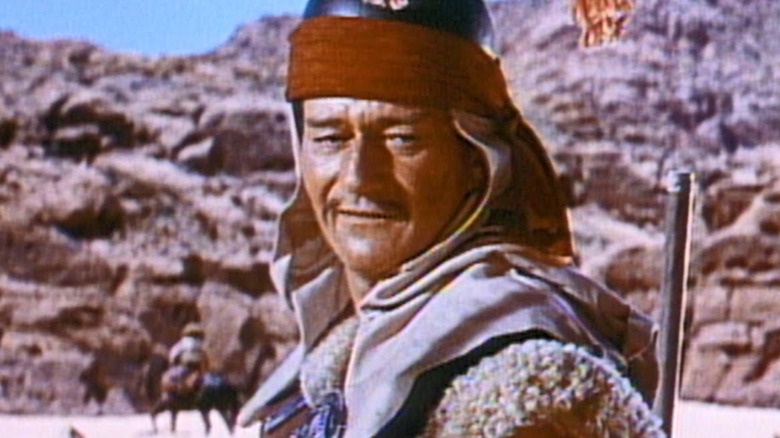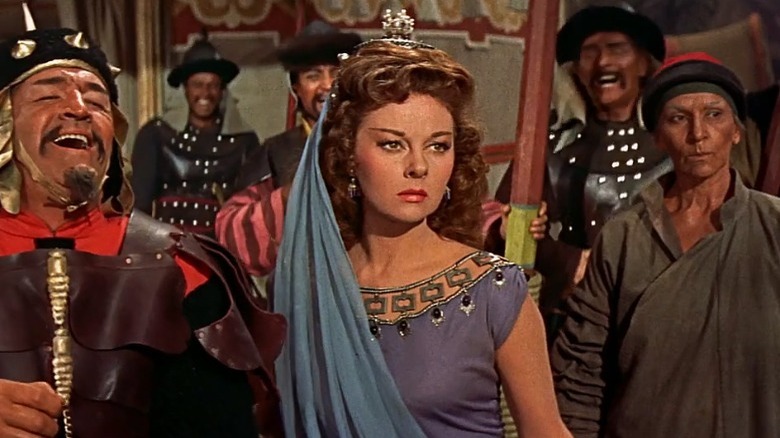Is John Wayne's The Conqueror To Blame For Its Real Life High Mortality Rates?
John Wayne is regarded as a Hollywood icon, though given the fact that he rose to prominence in the mid-20th century, it should come as no surprise that some of his films carry with them some problematic elements. Easily the most egregious example is 1956's "The Conqueror," which sees Wayne take on the role of the real-life former leader of the Mongol Empire, Genghis Khan. As if the unignorable and inexcusable use of yellowface isn't enough to sully Wayne and the biopic he regretted starring in's reputation, "The Conqueror" is also associated with high mortality rates among those who worked on it.
Much of the feature was shot in areas of the United States where nuclear testing had taken place. As noted by People back in 1980, of the 220 individuals who worked on the film, roughly 91 were diagnosed with cancer in their lifetimes. Some — including Wayne himself — even died as a result, but did the "Conqueror" set actually have anything to do with it? While the number of cases isn't far off from the average numbers of the era, the age at which they developed cancer was far younger than most. Not to mention, in the year before the shoot began, 11 nuclear bombs were tested in the area.
There's no way to conclusively determine if the "Conqueror" set itself cut numerous lives short, but that didn't stop some of the family members of those potentially affected from taking action.
The Conqueror case opens a wider discussion about the dangers of nuclear weapons
Speaking to People, Tim Barker, the son of "Conqueror" star Susan Hayward who was also on set with his mother during filming, said, "If the government knew that there was a possibility of exposure, why didn't they just warn us? What do I have to look forward to? Will I have to go through what my mother did?" Hayward died in 1975 of a brain tumor at the age of 57. The children of director Dick Powell, Ellen and Norman, also commented on the situation, hoping that awareness of this potential tragedy will spread. This all leads into an even bigger discussion about the role the government needs to play in taking responsibility for the enduring side effects of nuclear weapons testing.
Nearly a century after some of the first nuclear bomb tests took place in remote areas within the Western United States, communities are still feeling the effects of them. The Guardian notes that downwinders — individuals who've been exposed to radiation despite supposedly living a safe distance from the testing site — in that region seem to have developed all kinds of serious health issues after being told by the government decades ago that the fallout wouldn't bring any harm. Michelle Thomas, a downwinder advocate who seeks to hold the government accountable after all these years, told the publication, "I've lost count of the friends I've buried. I'm not patriotic. My government lied to me."
Nuclear weaponry and exposure to radiation aren't laughing matters, especially in regard to one's health. While there's no conclusive evidence that the "Conqueror" cast and crew were killed by nuclear fallout, if history has shown anything, it's not implausible by any stretch.

